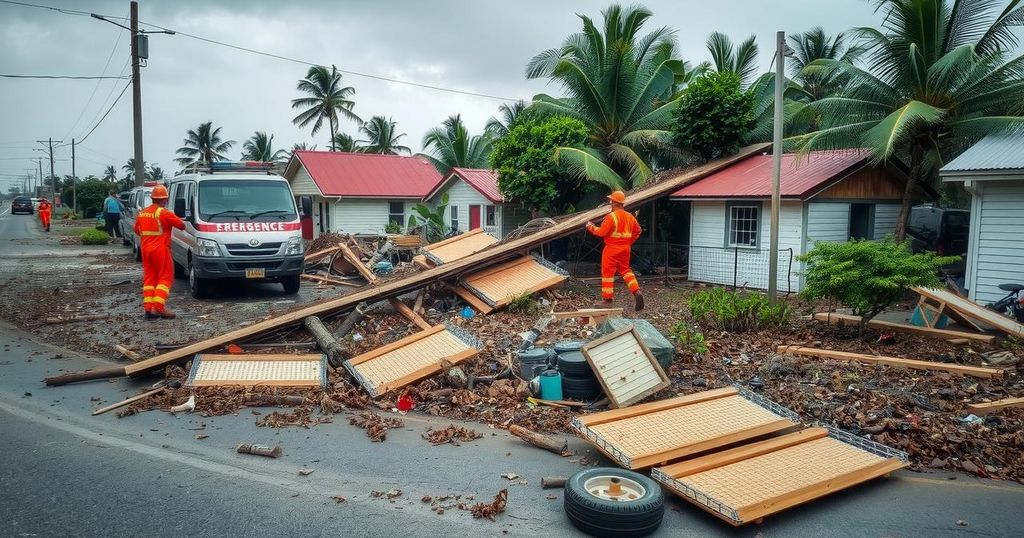Cyclone Chido has caused extensive damage in Mayotte, leading to a death toll expected to range from hundreds to potentially thousands. The French government has dispatched rescue teams and supplies to assist affected residents, while concerns grow over the cyclone’s impact in northern Mozambique. The event highlights increasing threats from climate-related disasters in vulnerable regions already facing economic hardship.
Cyclone Chido has wreaked havoc in the French territory of Mayotte, leading to a death toll reported as ‘several hundred’ and potentially reaching into the thousands, according to Mayotte’s top government official, François-Xavier Bieuville. This cyclone, categorized as a level four storm with winds exceeding 220 kph, is described as the worst to impact the region in 90 years, causing severe devastation to infrastructure and housing. Rescue efforts from France have been mobilized rapidly, with the French Interior Ministry confirming an initial count of at least 11 deaths and over 250 injuries; however, these numbers are expected to rise significantly as search and rescue operations continue. Damage reports indicate widespread destruction, particularly in the slum areas comprised of makeshift metal shacks, making access to accurate figures very challenging. Following Chido’s passage, urgent relief measures are being implemented, including the establishment of an air and sea bridge to facilitate further aid deliveries to the affected population. The cyclone subsequently affected northern Mozambique, exacerbating the humanitarian crisis in a region accustomed to severe weather disasters, prompting calls for increased international support in addressing the impacts of climate change.
The Indian Ocean region experiences a cyclone season from December to March, characterized by increasingly severe storms attributed to climate change. Many nations in southern Africa are significantly impacted by recurring cyclones, which not only damage infrastructure but also lead to health crises due to potential outbreaks of waterborne diseases. Cyclone Chido has drawn attention for its intensifying effects, highlighting the vulnerability of poorer regions that contribute minimally to global climate issues but bear the brunt of its consequences. Historical data indicates a trend of escalating storm severity, prompting urgent discussions around support for affected communities.
In summary, Cyclone Chido has inflicted catastrophic damage in Mayotte, leading to an alarming death toll and widespread destruction of infrastructure. The quick response from French authorities and humanitarian agencies aims to address the immediate needs of the devastated population. Calls for international assistance underscore the ongoing challenges faced by regions like Mayotte in dealing with the effects of extreme weather, enhancing the urgency for global action on climate change.
Original Source: apnews.com






